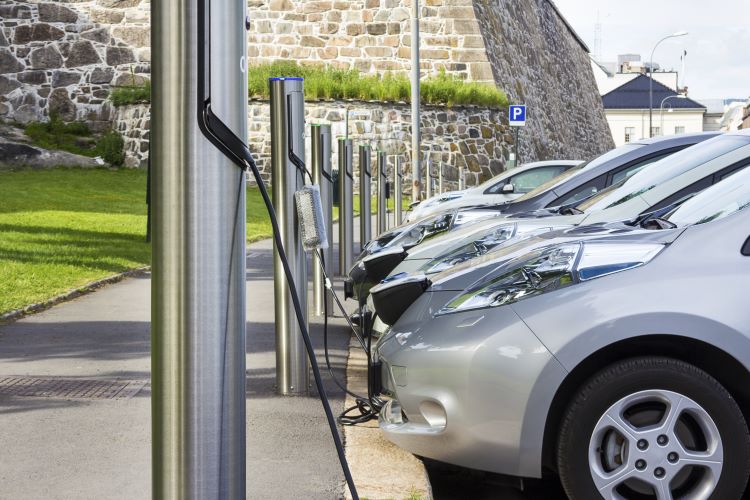Learn about career opportunities in waste management in Frankfurt am Main
If you live in Frankfurt am Main and speak English, you can explore the waste management sector. This field offers insight into the specific working conditions and challenges encountered in waste management environments, thereby contributing to sustainability and environmental protection.

The waste management industry in Frankfurt am Main represents a vital component of the city’s infrastructure, employing thousands of professionals across various specializations. As environmental concerns continue to shape urban planning and policy, the demand for qualified waste management personnel has grown steadily. Understanding the scope of these career opportunities requires examining the systems in place, the working conditions, and the broader environmental significance of this essential sector.
Discovering Waste Management Systems in Frankfurt am Main
Frankfurt’s waste management infrastructure operates through a comprehensive network involving municipal services, private contractors, and specialized facilities. The FES Frankfurter Entsorgungs- und Service GmbH serves as the primary municipal waste management company, handling residential and commercial waste collection throughout the city. The system encompasses multiple waste streams, including residual waste, recyclables, organic waste, and bulky items, each requiring specific handling procedures and expertise.
Professionals working within these systems engage in various activities ranging from logistics coordination to technical operations at sorting facilities and recycling centers. The city’s commitment to achieving high recycling rates and reducing landfill dependency has led to the implementation of advanced sorting technologies and material recovery facilities. Career opportunities exist not only in operational roles but also in planning, environmental compliance, public education, and technological innovation. Understanding how these interconnected systems function provides insight into the diverse positions available and the skills required for each specialization.
The Working Environment and Challenges in Waste Management
The working environment in waste management varies significantly depending on the specific role and location. Collection crews work outdoors in all weather conditions, following predetermined routes and schedules to ensure timely waste removal from residential and commercial properties. These positions demand physical stamina, attention to safety protocols, and the ability to operate specialized vehicles. Meanwhile, employees at sorting facilities and recycling centers work in industrial settings where they monitor machinery, sort materials, and ensure quality control in the recycling process.
Challenges in this field include managing the physical demands of manual labor, adapting to technological changes in waste processing, and maintaining safety standards in potentially hazardous environments. Workers must stay informed about regulations governing waste handling, hazardous materials, and environmental protection. The sector also faces ongoing challenges related to contamination in recycling streams, public compliance with sorting requirements, and the need to process increasingly complex waste materials. Despite these challenges, many professionals find the work rewarding due to its tangible environmental impact and the stability offered by essential public services.
Importance of Waste Management for Environmental Sustainability
Waste management plays a crucial role in Frankfurt’s environmental sustainability efforts and its commitment to climate protection goals. Proper waste handling prevents soil and water contamination, reduces greenhouse gas emissions from landfills, and conserves natural resources through recycling and material recovery. The city’s waste management strategy aligns with broader European Union directives aimed at transitioning toward a circular economy where materials are reused and recycled rather than disposed of after single use.
Professionals in this sector contribute directly to these sustainability objectives by ensuring efficient collection systems, maximizing recycling rates, and minimizing environmental harm from waste disposal. Educational initiatives targeting residents and businesses rely on waste management professionals to communicate best practices and promote behavioral changes. As Frankfurt continues to develop its environmental policies, the waste management workforce becomes increasingly important in implementing innovative solutions such as waste-to-energy facilities, composting programs, and advanced recycling technologies. Career opportunities in this field offer individuals the chance to participate meaningfully in environmental protection while developing valuable technical and operational skills.
Qualifications and Pathways into the Sector
Entering the waste management field in Frankfurt requires varying levels of education and training depending on the desired position. Entry-level collection and sorting positions typically require a basic educational background, a valid driver’s license for vehicle operation roles, and willingness to complete on-the-job training. More specialized positions, such as facility management, environmental compliance officers, or waste management planners, generally require vocational training or university degrees in environmental science, engineering, or related fields.
Germany’s dual education system offers apprenticeships in waste management and recycling, combining classroom instruction with practical workplace experience. These programs, known as Ausbildung, provide structured pathways into the profession with recognized qualifications upon completion. Additionally, continuing education opportunities allow existing workers to advance their careers through specialized certifications in areas such as hazardous waste handling, equipment operation, or environmental management systems. Understanding these educational pathways helps prospective workers identify the steps needed to enter and progress within the waste management sector.
Career Development and Long-Term Prospects
The waste management sector in Frankfurt offers stable employment with opportunities for career advancement. As environmental regulations become more stringent and waste management technologies evolve, the need for skilled professionals continues to grow. Workers who demonstrate reliability, technical competence, and willingness to adapt to new methods can progress from operational roles into supervisory, technical, or administrative positions.
Long-term prospects in the field remain positive due to the essential nature of waste management services and ongoing investments in infrastructure modernization. The transition toward circular economy principles creates new specializations in areas such as resource recovery, waste prevention consulting, and sustainable materials management. Professionals who develop expertise in emerging technologies or gain qualifications in environmental management position themselves advantageously for career growth. The sector’s stability, combined with its environmental significance, makes waste management an attractive career choice for individuals seeking meaningful work with practical impact on their community and environment.




